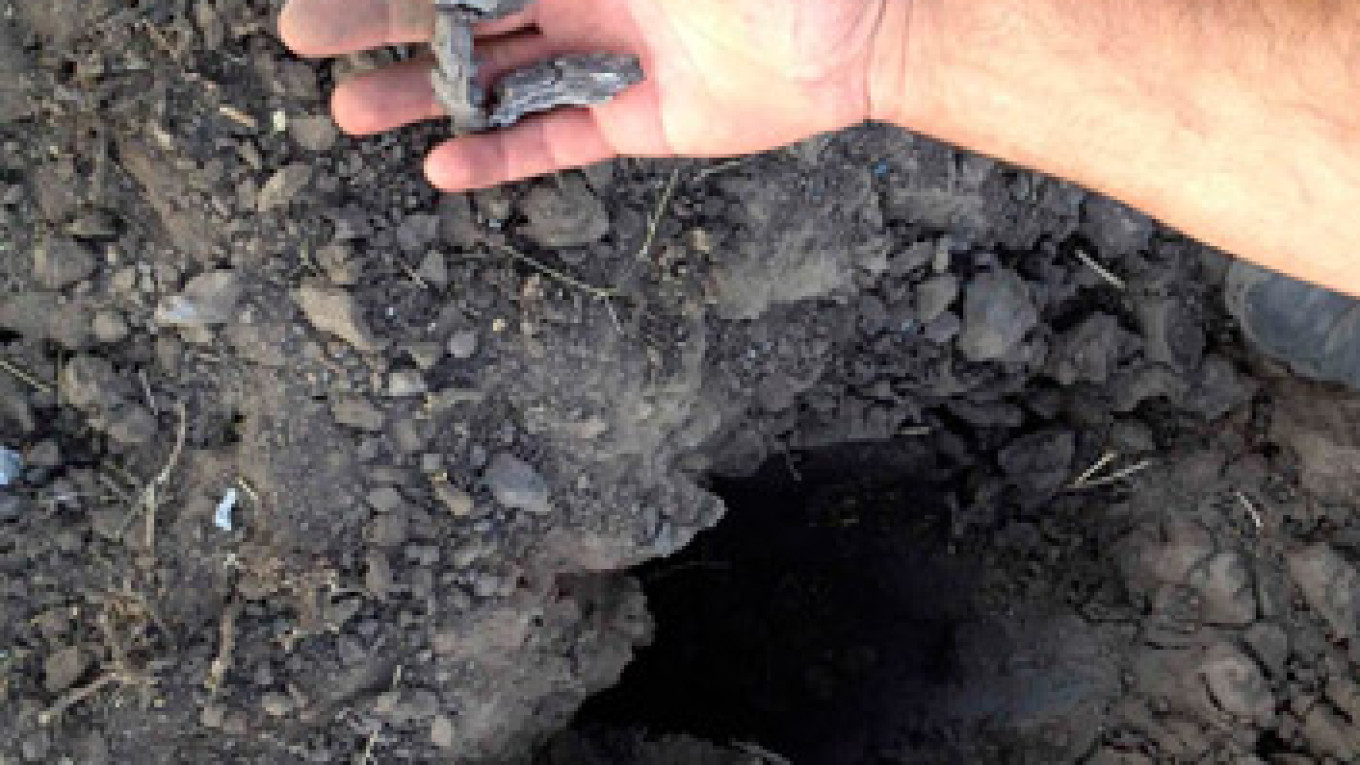Ukraine accused Russian forces of launching a new military incursion across its border on Wednesday, a day after the leaders of both countries agreed to work toward ending a separatist war in Ukraine's east.
The accusation, which could not be immediately verified, quickly dented any sense of cautious optimism from Tuesday's late-night talks between Presidents Vladimir Putin and Petro Poroshenko on resolving the five-month conflict.
Ukrainian military spokesman Andriy Lysenko said a group of Russian soldiers had crossed the border in armored infantry carriers and a truck and entered the eastern town of Amvrosiyivka, not far from where Ukraine detained 10 Russian soldiers on Monday.
Lysenko said that fighting in the towns of Horlivka and Ilovaysk to the north and east respectively had killed about 200 pro-Russian separatists and destroyed tanks and missile systems. He said 13 Ukrainian service personnel had been killed in the past 24 hours, and 36 had been wounded.
No comment was immediately available from the Russian Defense Ministry on the alleged incursion.
Russia has repeatedly denied sending weapons and soldiers to help the eastern rebels, and says the men captured on Monday had crossed an unmarked section of the border by mistake.
"As for the latest wave of panic in Ukrainian media that Russia is joining the war — if Russia joined the war, the counter-offensive would already be in Kiev," Denis Pushilin, a former separatist leader, told reporters in Moscow.
The disputed question of direct Russian involvement is at the heart of the crisis, in which the United States and European Union have imposed sanctions on Russia and Moscow has responded in kind. Russia has beefed up forces on the Ukrainian border and NATO has responded by stepping up exercises in eastern Europe.
Ukraine's Poroshenko promised after meeting Putin to work on an urgent ceasefire plan to defuse the conflict, in which the rebels have declared two breakaway eastern republics, together forming a region they refer to as Novorossia (New Russia).
Putin called the talks in Belarus positive, but said it was not for Russia to work out the details of truce terms between Kiev and the rebels.
"We can only contribute to create a situation of trust for a possible, and in my view, extremely necessary, negotiation process," he said.
Rebel Reaction
A rebel leader, Oleg Tsaryov, wrote on Facebook that he welcomed the outcome of the talks, but the separatists would not stop short of full independence.
"Probably the most important result is Vladimir Putin's proposal to mediate between Ukraine and Novorossia. This is a real breakthrough," he said.
But he added: "It must be understood that a genuine settlement of the situation is only possible with the participation of representatives of Novorossia. We will not allow our fate to be decided behind our back...
"Now we are demanding independence. We don't trust the Ukrainian leadership and don't consider ourselves part of Ukraine. The guarantee of our security is our own armed forces. We will decide our own fate."
Fighting in the east erupted in April, a month after Russia annexed Ukraine's Crimean peninsula in response to the toppling of a pro-Moscow president in Kiev.
A United Nations report obtained by Reuters on Tuesday said more than 2,200 people have been killed, not including the 298 passengers and crew who died when a Malaysian airliner was shot down over rebel-held territory in July.
The crisis has prompted the United States and EU to impose sanctions on Russia's finance, oil and defense sectors, and Moscow has hit back by banning most western food imports. The trade wars threaten to tip Russia into recession and strangle economic recovery in Europe.
Further underlining the distrust between Kiev and Moscow, Ukrainian Prime Minister Arseny Yatseniuk urged NATO to offer "practical help" to Ukraine at an alliance summit in Wales next month.
He also said he knew of Russian plans to halt gas flows this winter to Europe, up to half of which are shipped via Ukraine.
Yatseniuk did not give the source of his information. Russian gas exporter Gazprom declined to comment, and no reaction was immediately available from the energy ministry.
Russia cut off gas supplies to Ukraine in June in a dispute over pricing and debt, but has continued to supply Europe via its southern neighbor.
In a positive note from the talks in the Belarussian capital Minsk, Putin said he and Poroshenko had agreed to talks on Russian gas supplies to Ukraine.
"We need to resume our energy dialogue, including about gas problems. Sincerely speaking, this is a complicated issue, it has reached a dead end, but we still need to talk about it. We agreed to resume these consultations," he said.
European Energy Commissioner Guenther Oettinger said three-way gas consultations would take place in Moscow on Friday between Russia, Ukraine and the EU.


